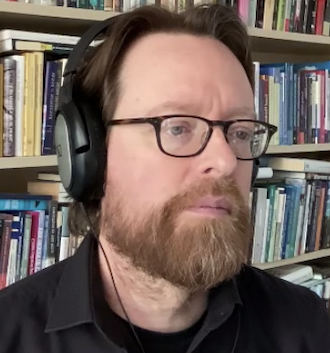Science Before Statistics: Introduction to Bayesian Causal Inference - Online Course
Distinguished Speaker Series: A Seminar Taught by
Richard McElreath12:00pm-3:00pm (convert to your local time)
ABSTRACT
Does wind make the trees sway, or do swaying trees make the wind blow? Statistical tools can be essential for addressing these sorts of questions, but they aren’t sufficient. Statistical models are very useful for making predictions. But a causal claim is one that allows us to predict the consequences of an intervention in some system. To make valid and persuasive causal claims, a scientific model is always necessary – in addition to one or more statistical models.
In recent decades, an interdisciplinary literature has developed that allows us to connect statistical models to scientific models of causal processes. Scientific models at different levels of description and detail can be analyzed to decide how to use available data – or whether we can even use available data – to answer specific causal questions.
In the first part of this seminar, we will show how traditional uses of regression modeling do not automatically and appropriately answer intended causal questions.
In the second part, we develop the causal approach at the most basic level. We will begin with graphical causal models and show you how to analyze them – essentially with your eyeballs – to decide which variables are needed and which are harmful for making a target inference.
In the third part, we will show how computational Bayesian models can naturally express scientific causal models and thereby help us in the very hard work of estimation from finite and imperfect data.
Who should attend: Researchers who use data analysis to make causal claims. The seminar assumes a basic familiarity with multiple regression, but we won’t do a lot of coding in this course. Instead, we aim to motivate conceptual connections and teach you new skills for analyzing causal models. As such, a variety of statistical backgrounds are appropriate, Bayesian or non-Bayesian.
This Distinguished Speaker Series seminar will consist of three hours of lecture and Q&A, held live* via the free video-conferencing software Zoom.
*The video recording of the seminar will be made available to registrants within 24 hours and will be accessible for four weeks thereafter. That means that you can watch all of the class content and discussion even if you cannot participate synchronously.
Closed captioning is available for all live and recorded sessions. Captions can be translated to a variety of languages including Spanish, Korean, and Italian. For more information, click here.
Payment information
The registration fee is $195.
PayPal and all major credit cards are accepted.
Our Tax ID number is 26-4576270.
The registration fee is $195.
PayPal and all major credit cards are accepted.
Our Tax ID number is 26-4576270.

